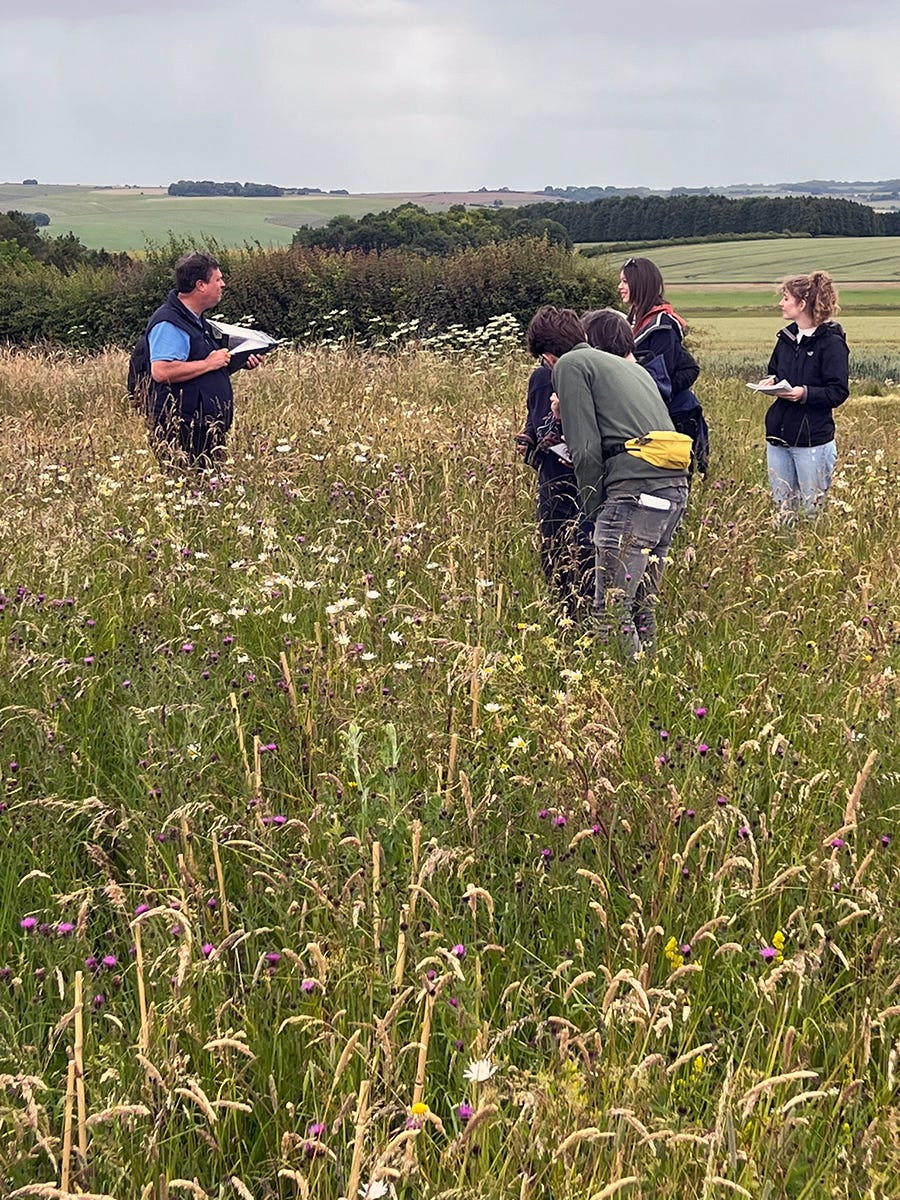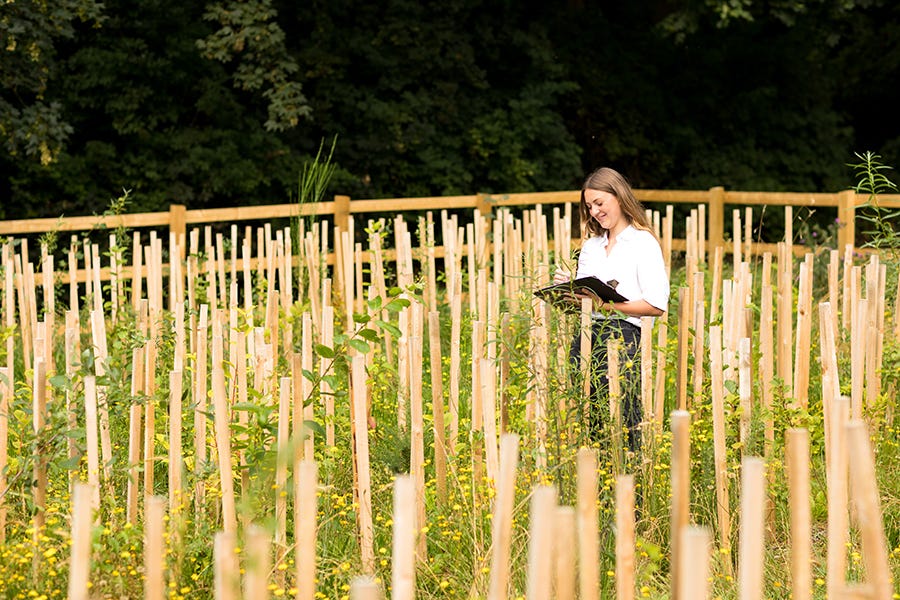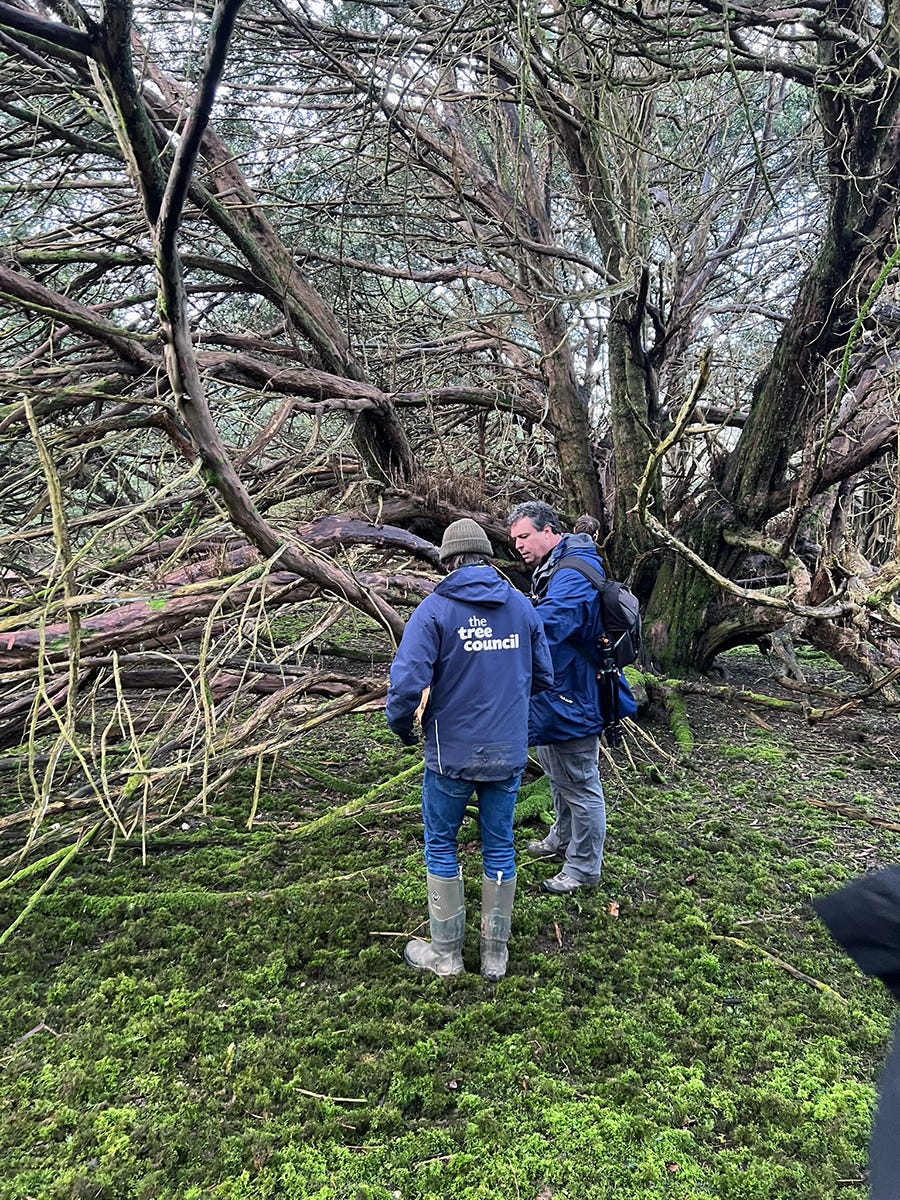With the nature and climate emergencies never far from the front pages and trees an undeniable mitigating factor, it’s no great surprise that tree planting is high up the agenda for many organisations. Across the world, like in the UK, many tree planting targets are driven by wider national targets for increased canopy cover and a move closer to net zero carbon and this in-turn encourages authorities, landowners and corporations to establish their own tree targets. So does this translate into tree planting roles as the hottest job in the UK labour market? Not exactly, and here’s why.
Whilst there is a focus on planting trees across the UK, there isn’t necessarily an army of people being employed as professional tree planters. The focus of many organisations supporting tree-planting is to connect communities, workforces and stakeholders with the young trees going into the ground and so many newly planted trees have been the result of volunteer efforts as opposed to employed tree-planters. This gives communities a vested interest in the trees around them and (hopefully) makes them more inclined to care for and protect them.
This leads onto another point. The recognition of the importance of trees has moved beyond the emphasis of simply planting trees and vitally has become a wider remit of caring for trees. Whether nurturing young trees so they become valuable resources when they reach maturity or supporting older trees already contributing significantly to keep them around as long as possible, the need to help trees of all age grow and survive opens up opportunities for a wide range of tree-related careers. Local authorities, national parks and landscapes, nature reserves, estates, charities and farmers are just some of the organisations employing people to fulfil tree planting and care, or using the services of external organisations and contractors who offer these combined services.
To ensure new tree planting is carried out in the right place and with the right trees, consultants, landscape architects and planners can be brought in to assist. In addition to volunteer support, planting may be carried out by arborists who can go on to offer ongoing care such as tree pruning or removing damaged limbs and felling trees. Ongoing tree management can be supported by a tree officer who inspects trees for health or structural issues and plant health specialists can advise on pest and disease issues. Tree-related careers don’t stop there, biodiversity specialists examine the impact of trees on wider habitats and help to create nature-friendly environments within woodlands, officers and guides can help the public to access and enjoy trees and wooded areas and there’s an array of jobs in tree production and nurseries growing trees for future planting projects.

We can see that the emphasis on the importance of trees throughout our counties and communities creates great opportunities for careers, it also creates related challenges. Labour market information suggests that there will be a shortfall in people to meet the demand for tree and forestry-related careers increasing to over 85% vacancy levels in forestry workforces in England by 2050 (Forestry Workforce Research Report 2021). Whilst this causes concern for organisations looking to fill these positions, it seems like a goldmine for jobseekers. But this doesn’t necessarily mean will we see a stream of school leavers heading for the arboriculture courses with exam certificates in hand.
Careers education within schools can commonly omit arboriculture from their content leaving many teens unaware of the opportunities in the tree-sector. We also see that many colleges and sixth forms don’t offer arb-related courses, but leave it to the limited specialist colleges. This restricted offer leaves young people unable to travel to specialist colleges or uncomfortable with straying from the crowd and opting for a different provider from their friends. This leaves a small trickle of school leavers entering the sector, along with those brave enough to make a career switch later in life. Depending on your outlook this can be a huge opportunity or intimidating challenge.
For those wishing to work in tree-related careers, there are many volunteer opportunities to provide excellent experience and a range of courses across the UK to help deliver the training and skills valued by employers. For those wishing to employ the tree guardians for the future who will plant and care for our trees and woodlands, they will benefit from working together to talk to young people and schools about the opportunities for the future to build that much-needed workforce.
Trees provide an opportunity for our planet, our climate and our young people – for their life, health and employment. We need to make sure we’re maximise all those opportunities.
Katie Rafferty is The Tree Council’s National Schools Programme Manager. Find out more by visiting www.youngtreechampions.org
MORE: Sowing the seeds of nature connection by Katie Rafferty






This is a great article thank you Katie and really highlights the need for more young people to be brought into the industry. I work with many young people who are passionate about trees and working in the woodland sector however there is little or no encouragement from the employment agencies that work with them. Our organisation aims to provide industry recognised qualifications etc to help fill the skills gap but it is still very hard for them to enter the industry, what is really needed are proper apprenticeship schemes that are both financially and personally attractive to the younger generations.